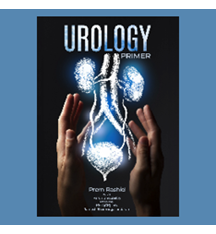2023 | Volume 24 | Issue 3
Professor Owen Ung
Brisbane general (breast and endocrine) surgeon, clinician and academic Professor Owen Ung has been appointed RACS vice president.
The new role follows Professor Ung’s experience as a RACS councillor and examiner over many years, and as previous chair of the Queensland RACS Regional Committee.
Professor Ung began his surgical career in Sydney after working in Queensland at the Maryborough and Redcliffe hospitals, then training at Townsville, Royal Children and Royal Brisbane hospitals.
While he enjoyed working as a house officer in regional Queensland, and gained valuable skills, his goal was to pursue surgical training, then known as ‘Advanced Surgical Training’ in Brisbane.
He experienced some obstacles in gaining entry to the program, due to prejudice or unconscious bias, against junior doctors with only country experience.
While the College has significantly improved the selection process, at the time an aspiring surgeon needed an advocate connected to the training program and then a ‘tap on the shoulder’.
“I enjoyed my time in the country but realised that it didn’t offer me a pathway to become a surgeon,” he said.
“Each year from Maryborough, I'd try to get closer to Brisbane and apply for next tier hospitals such as Ipswich, Toowoomba, or Redcliffe as a steppingstone to one of the big teaching hospitals.
“Nobody wanted to give me a job because they didn't know me and I'd been working in country Queensland, which was thought to offer inferior training. Maybe I was too mild mannered.”
He was also aware of his status as a member of a minority group within a very traditional occupation.
“I wouldn’t say I was discriminated against, but even from schooldays in the ‘60s, it was harder for people who did not have your typical white, Caucasian background to make progress. That's obviously changed now.”
Eventually, Professor Ung met surgical mentors, including Associate Professor Cliff Pollard and Emeritus Professor Stuart Pegg. With their support he gained positions at Royal Brisbane Hospital and developed his career nationally and internationally.
After obtaining his Fellowship in 1992, he worked as the inaugural breast and endocrine Fellow at Westmead in Sydney, and then gained international experience as a lecturer at the University of Wales College of Medicine.
He returned to Sydney, where he worked in public practice at Westmead and private practice in the northwest for 17 years.
Professor Ung moved back to Brisbane mid-career, returning to the community and lifestyle he had enjoyed in his youth and formative years as a Trainee.
A significant and welcome change he has observed in the profession has been the increased flexibility for surgeons.
“Many older surgeons worked 60-plus hours a week and were on call 24 hours a day, seven days a week, at least for their private patients, for their whole lives,” he said.
Witnessing this demanding lifestyle initially dissuaded his four children from following in his footsteps into medicine, but one daughter has since trained in psychiatry.
Professor Ung has reduced his clinical work to focus on research and teaching with the University of Queensland, and on his board and administrative roles, including director of Queensland Health’s Comprehensive Breast Cancer Institute.
“As surgeons, we get most of our joy professionally from the hundreds and hundreds of patients that we’ve hopefully successfully treated.
“As you get older, you realise your biggest impact is potentially through your influence on health policy; it’s why I value the roles I’ve been fortunate to have in medical indemnity, the Australian Medical Association and RACS.”
As RACS vice president, Professor Ung will support the evolution of the profession to meet the needs of surgeons and ensure its governance structure is fit for purpose.
“We can be outward looking while, most importantly, engaging and representing our diverse membership. As the organisation that delivers education, provides services and sets standards, RACS must always be cognisant that we are a member organisation.
“As we look towards our centenary in 2027, we can cherish our history and the traditions that define us as a profession, while recognising that some settings have changed. This includes the regulatory requirements of educational institutions and expectations of our Fellows, the community and government.
“We have grown into a large and complex organisation and need to evolve to negotiate the risks ahead and prepare to meet existing and future challenges,” he said.


